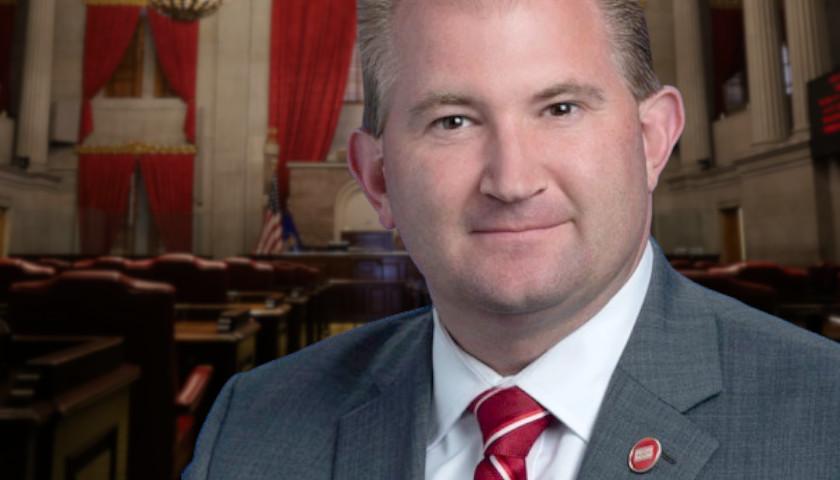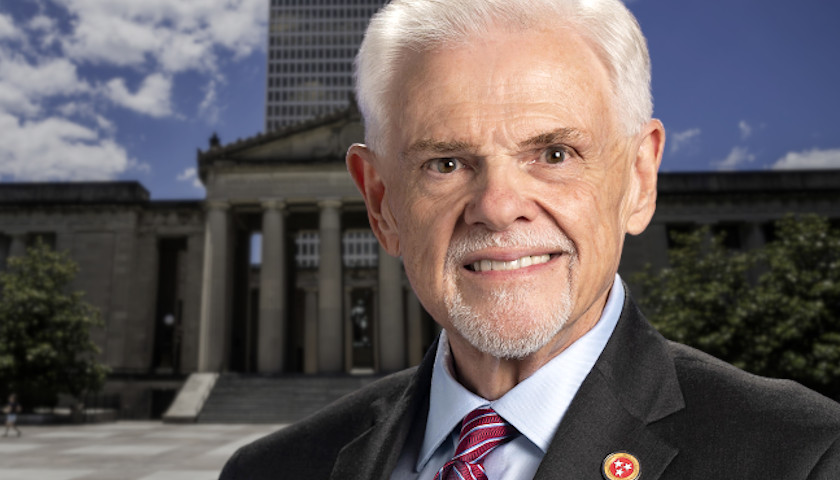Monday morning on The Tennessee Star Report with Michael Patrick Leahy – broadcast on Nashville’s Talk Radio 98.3 and 1510 WLAC weekdays from 5:00 a.m. to 8:00 a.m. – Leahy was joined on the newsmaker line by Tennessee State Senate Majority Leader Jack Johnson to comment upon the rapid bipartisan Senate bill that passed proposed by Frank Niceley requiring three-year residency in the state to run for House and Senate seats and progress with education funding.
Leahy: We are joined right now on our newsmaker line by our very good friend, Tennessee State Senate Majority Leader Jack Johnson. Good morning, Jack. Thanks for joining us.
Johnson: Good morning, Michael. Great to be back with you.
Leahy: We’re going to ask two specific questions and then go to a more general question about where the Tennessee General Assembly is right now.
Last week, in a stunning 31-to-one vote, the Tennessee State Senate passed Frank Niceley’s bill that would establish a three-year residency for anyone who seeks to compete in a primary of either Democrat or Republican.
That would be going into effect immediately under the Niceley bill. It just passed last week from a subcommittee in the House, essentially the same – asterisk. But it would go into effect like next election cycle.
If these bills go through and they’re conflicting, what will the conference committee do, and how does that play out? People tell us that in conference committees the state Senate tends to have primacy over the state House. What are your thoughts on that?
Johnson: Great question. And you’re right. I was somewhat surprised at the margin that the bill passed. I fully expected the bill to pass the Senate, but I didn’t expect it to be that close. There was only one descending vote. And it’s interesting to note that all five Democrats voted for the bill. It had bipartisan support and was to go into effect immediately.
When the House gets to the floor, regardless of what bill has passed out of committee, they will be on the Senate bill. So the motion will be to conform and substitute to the Senate bill. So when they first take it up from a parliamentary standpoint, they will be on the Senate bill.
Then they have the option to amend it and they could then attach an amendment that had come through their Senate committee system, rather than their House committee system.
And if it has an effective date that is different and they end up passing that, then it’ll come back to the Senate and we have the option to accept their version of the bill. If we refuse that, it goes back to the House. They have one last opportunity to accept the Senate version.
If they decline, then we go to the conference committee. And if it goes to a conference committee, Michael, I really have no idea what is going to happen.
Leahy: That’s an excellent, detailed answer. I appreciate it very much. We have another detailed question coming from Crom Carmichael. This is a new development. You may not be familiar with it. Crom, set the stage for Senator Johnson with your question.
Carmichael: Yes. Senator Johnson, over the weekend I received some information that I think is accurate, but I’m not sure. So you can correct me if I’m wrong. And that is if there was a bill that passed the House that would greatly increase the number of signatures required at the local level to put something on the ballot for a referendum.
The Senate bill is SB2544. And if that were to pass, it would be virtually impossible for the voters, and I’m going to use Davidson County as an example.
It’d be virtually impossible for the voters of Davidson County to put a referendum on the ballot to counteract terrible policy passed at the local level. And I am hoping that you are familiar with that bill and you will kill it dead in the Senate.
Johnson: (Scoffs) I can answer it from a philosophical standpoint, and I’m sorry, I don’t believe the bill has advanced on the Senate side. But I can tell you from a philosophical standpoint, I would be opposed to that.
I think that the referendum process, specifically in a city like Nashville, we’ve seen it in regards to tax issues and transportation issues and so forth, the system works well as it is, so I can only answer in generalities, but I think the system we have in place now is a good one.
Leahy: Jack, you’re not in studio with us, but you can see on Crom’s face now a giant sigh of relief.
Carmichael: I’m concerned because it did somehow slip through the House. It passed in the House.
Leahy: It’s in the State and Local Committee tomorrow morning. So just FYI.
Johnson: Well, thank you. And I don’t serve on that committee, but I will be watching for that. And I appreciate you bringing that to my attention.
Leahy: What are the big agenda items remaining in this session of the Tennessee General Assembly?
Johnson: I’d say the biggest by far is education funding. I know you guys have talked about it on your show some. As majority leader, I’m carrying that legislation for Governor Lee, and it’s high time that we finally tackle this what has sometimes been the third rail of politics in Tennessee, which is an antiquated funding formula that we used where there’s no accountability.
We don’t know where the dollars go. And I’m very proud of the proposal that has been set forth that would tie, for the first time in Tennessee history, education funding to the student rather than funding bureaucracies and systems and organizations and that type of thing.
Thirty-nine other states have a student-centered type of formula. So Tennessee is really lagging behind in this regard. We should be able to pull a child out of Shelby County, Pickett County, Williamson County, and know exactly how much money is appropriated to that child from the state and the local governments and know where that money is being spent.
And if we did that, I think we could do a much better job of holding some of our failing school systems, like Nashville and Shelby County, accountable for failing those kids.
Carmichael: Senator, Using Davidson County as an example or even Williamson County, does that the money is attached to that child? And if that child goes to a charter school, that money then goes with the child to the charter school?
Johnson: Yes. And not only that but something that we have experienced in Williamson County that is very frustrating is we have, obviously a lot of growth in Williamson County, a lot of folks moving in. And one of the drivers of that is the quality school systems that we have in Williamson County.
So we’ve seen significant year-over-year growth in our school system in Williamson County, even through COVID, we basically held our numbers. The current formula says they take a snapshot year after year, basically at the end of the year to see how many students you have, and then that dictates how much money you get moving forward.
So not only would the money follow if a child goes to a charter school, but it would also follow the child if they move from Davidson County to Williamson County in, let’s say,; October, just two, three months into the school year, Williamson County doesn’t get the funding for that student until the next year.
This new formula as proposed, the funding for that student would begin accruing within 48 hours of enrollment for that student. And then the money would follow shortly after that, which is critical.
Carmichael: And this is for the system of schools that are funded by the government. This does not apply to a student in Williamson County who left a school run by the government and went to a private school. The money would not follow. This is not a voucher system at this point, is that correct?
Johnson: It is not. It’s only from public school to public school. As you know, we did pass for the first time. I was proud to sponsor for the first time in Tennessee history school choice legislation a couple of years ago, and it did pass for Shelby County and Davidson County.
And it is currently before the Supreme Court. It’s been challenged. And that case is pending before the Supreme Court. And I’m optimistic that we’ll have a good outcome there before the state Supreme Court and we can get that program initiated.
Listen to the full interview here:
– – –
Tune in weekdays from 5:00 – 8:00 am to the Tennessee Star Report with Michael Patrick Leahy on Talk Radio 98.3 FM WLAC 1510. Listen online at iHeart Radio.





